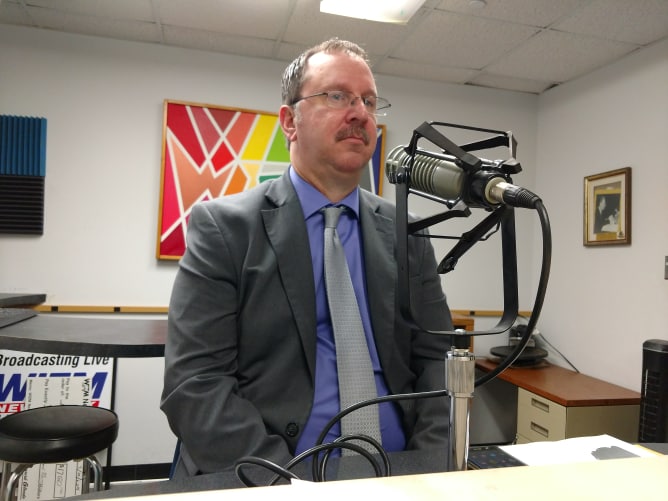Police
La Crosse DA discusses how area leaders put policy over politics in regards to crime issues

Whether there’s a recount in the La Crosse County sheriff’s race or not, there will be a new sheriff.
La Crosse County District Attorney Tim Gruenke discussed Monday on WIZM a bit about what that could mean.
La Crosse Talk PM airs weekdays at 5:07 p.m. Listen on the WIZM app, online here, or on 92.3 FM / 1410 AM / 106.7 FM (north of Onalaska). Find all the podcasts here or subscribe to La Crosse Talk PM wherever you get your podcasts.
Though he doesn’t expect any big changes because both John Siegel, who is up 175 votes with an impending recount possible, and Fritz Leinfelder have worked within the department for over 20 years.
And because of that, Gruenke already has experience working with both, but a new sheriff could bring change.
“Be something as simple as how they’re doing their reports or how they’re entering data to a different priority in terms of crimes they want to address or a different way of handling a problem” Gruenke said on La Crosse Talk PM. “That happens all the times anyway but when there’s a new change of leadership, like anywhere, they’ll sit down, I’m sure, and talk with us about how that might affect us or how that might affect the rest of the system.”
Gruenke also discussed the priorities of state legislators from the La Crosse area, as compared to elsewhere, and how they have work with law enforcement and the DA’s office.
“Whether it’s Republican or Democrat,” Gruenke said, “I think La Crosse legislators have always been pretty good about trying to check in with the local police and DA about, ‘What do you think about this bill?’ or ‘What do you think about that bill?’
“Sometimes, either I or the police will suggest something to them, say, ‘This is an issue we think you need to look into.’ Other times, they come to us, say, ‘This is being raised. What do you think about it?’”
That’s important, according to Gruenke, because those priorities — that communication — doesn’t happen everywhere.
“What I see around other parts of the state are people just trying to make news or make political gains by proposing things that aren’t very realistic,” Gruenke said. “So I think we’re lucky here to have some legislators that want to actually solve problems and listen to constituents, instead of just kind of making political points.”
When that line of communication is open, police chiefs, sheriffs, the DAs and others in the field, have the ability to adjust how things are crafted. Gruenke was asked specifically what some of those things might be.
“Sometimes bills are proposed in Madison that we might warn them that, ‘Hey that would be a really bad idea,’ or, ‘That might result in problems.’” Gruenke said. “It’s usually around OWIs.
“Someone’s trying to make OWI laws tougher but the idea that they have is sometimes maybe counterintuitive and might result in more problems instead of less. So we try and keep an eye out in what people are proposing in Madison and decide, ‘How is that going to affect people here?’”
That conversation stemmed from a Winona sentencing last week, where someone twice the legal limit, driving the wrong way down Highway 61, hit and killed a college student. He was sentenced to four years in prison.
Other specific changes Gruenke discussed hovered around drugs, mental health and, of course, a lack of funding.
“I think that there’s always tweaks in law that go to things like penalties to some drug offenses that are mandatory, that are ending up with prison time with no options for misdemeanors is a little bit out of whack with what I think people would want, “Gruenke said. “Funding is always an issue with things like treatment courts and mental health. So, issues like that affect us directly. And every time the state cuts back on providing services locally, it affects our criminal justice system. So some of it is those issues.”






